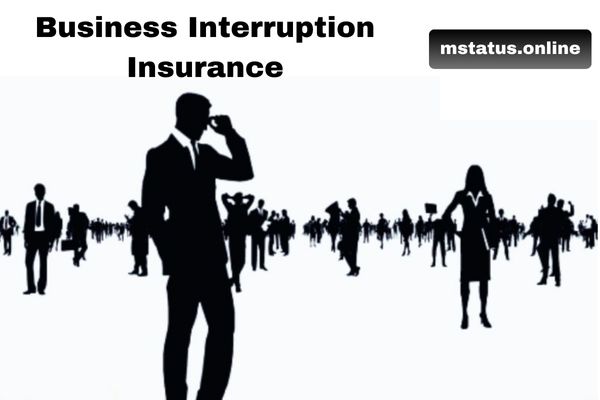In the fast-paced world of business, unforeseen events can disrupt operations, leading to significant financial losses. Business interruption insurance (BII) serves as a crucial safety net for companies, helping them navigate the challenges posed by disruptions. This article will explore the essentials of business interruption insurance, how it works, its benefits, and tips for choosing the right coverage.
What is Business Interruption Insurance?
Business interruption insurance is a type of coverage that compensates businesses for income lost due to a temporary shutdown or disruption. This insurance typically covers losses resulting from events such as natural disasters, fires, equipment failures, or other unforeseen incidents that interrupt normal business operations.
Components of Business Interruption Insurance
- Gross Earnings: This includes the income lost during the interruption period. It often covers revenue that would have been earned if the business had not been affected.
- Operating Expenses: These are ongoing expenses that continue even when business operations are halted, such as rent, utilities, and salaries.
- Extra Expenses: These are additional costs incurred to expedite recovery or minimize loss, such as renting temporary equipment or relocating operations.
How Does Business Interruption Insurance Work?
Business interruption insurance generally kicks in after a covered event occurs. Here’s a step-by-step breakdown of the process:
- Event Occurs: A disaster or event that leads to a disruption in business operations occurs (e.g., fire, flood).
- Notification: The business owner must notify the insurance provider as soon as possible to start the claims process.
- Assessment: The insurer will conduct an investigation to assess the extent of the damage and the resulting impact on the business.
- Claim Settlement: If the claim is approved, the insurer will compensate the business for the lost income and covered expenses during the period of interruption.
Coverage Period
Most policies have a specific coverage period, often ranging from several weeks to several months. It’s crucial for businesses to understand the duration of coverage and how it aligns with their recovery plans.
Benefits of Business Interruption Insurance
Business interruption insurance offers several advantages for businesses, including:
- Financial Protection: It safeguards against significant revenue losses during an operational downtime.
- Peace of Mind: Business owners can focus on recovery efforts knowing they have financial support.
- Maintaining Cash Flow: By covering ongoing expenses, the insurance helps maintain liquidity during challenging times.
- Competitive Edge: Businesses that can quickly recover from disruptions may outperform competitors who are not insured.
Real-World Scenarios
To better understand the significance of BII, let’s consider a few real-world scenarios:
| Scenario | Impact on Business | BII Benefits |
|---|---|---|
| Natural Disaster | Store closure for months due to flooding | Covers lost revenue and ongoing expenses during recovery |
| Fire Incident | Temporary shutdown for repairs | Provides funds for relocation and continued operational costs |
| Equipment Breakdown | Production halts for several weeks | Compensates for income loss while repairs are made |
Common Exclusions in Business Interruption Insurance
While BII can provide vital coverage, there are common exclusions that businesses should be aware of:
- Unforeseen Events: Some policies may not cover certain natural disasters or civil disturbances.
- Lack of Physical Damage: If there’s no physical damage to the property, the insurance may not apply.
- Pandemic-Related Losses: Many insurers have added exclusions for losses due to pandemics, although this is changing in some regions.
- Inadequate Policy Limits: If the coverage limits are too low, businesses may not receive sufficient compensation for their losses.
Choosing the Right Business Interruption Insurance
Selecting the right business interruption insurance involves careful consideration. Here are key factors to keep in mind:
Assess Your Needs
Evaluate your business’s risk exposure. Consider factors such as:
- Industry Type: Different industries have varying risks and recovery times.
- Location: Businesses in disaster-prone areas may need more comprehensive coverage.
- Business Size: Larger businesses may require higher coverage limits due to potential revenue loss.
Understand Policy Terms
Read the policy thoroughly to understand:
- Coverage Limits: Ensure the limits align with your business’s potential income loss.
- Exclusions: Be aware of what is not covered to avoid surprises during claims.
- Waiting Periods: Some policies may have waiting periods before benefits kick in.
Consult with Experts
Working with an insurance broker or financial advisor can help you navigate the complexities of business interruption insurance. They can provide valuable insights into choosing the best coverage tailored to your business’s specific needs.
The Future of Business Interruption Insurance
As the business landscape evolves, so too does the nature of risks faced by companies. The COVID-19 pandemic highlighted vulnerabilities, leading to increased scrutiny of business interruption policies. Insurers are now adapting their offerings to better address pandemic-related losses and other emerging risks.
Conclusion
Business interruption insurance is an essential component of a comprehensive risk management strategy. It provides financial protection, ensuring businesses can recover from unexpected disruptions without facing debilitating losses. By understanding how BII works, its benefits, and how to choose the right coverage, business owners can safeguard their companies against the unforeseen challenges that lie ahead.
